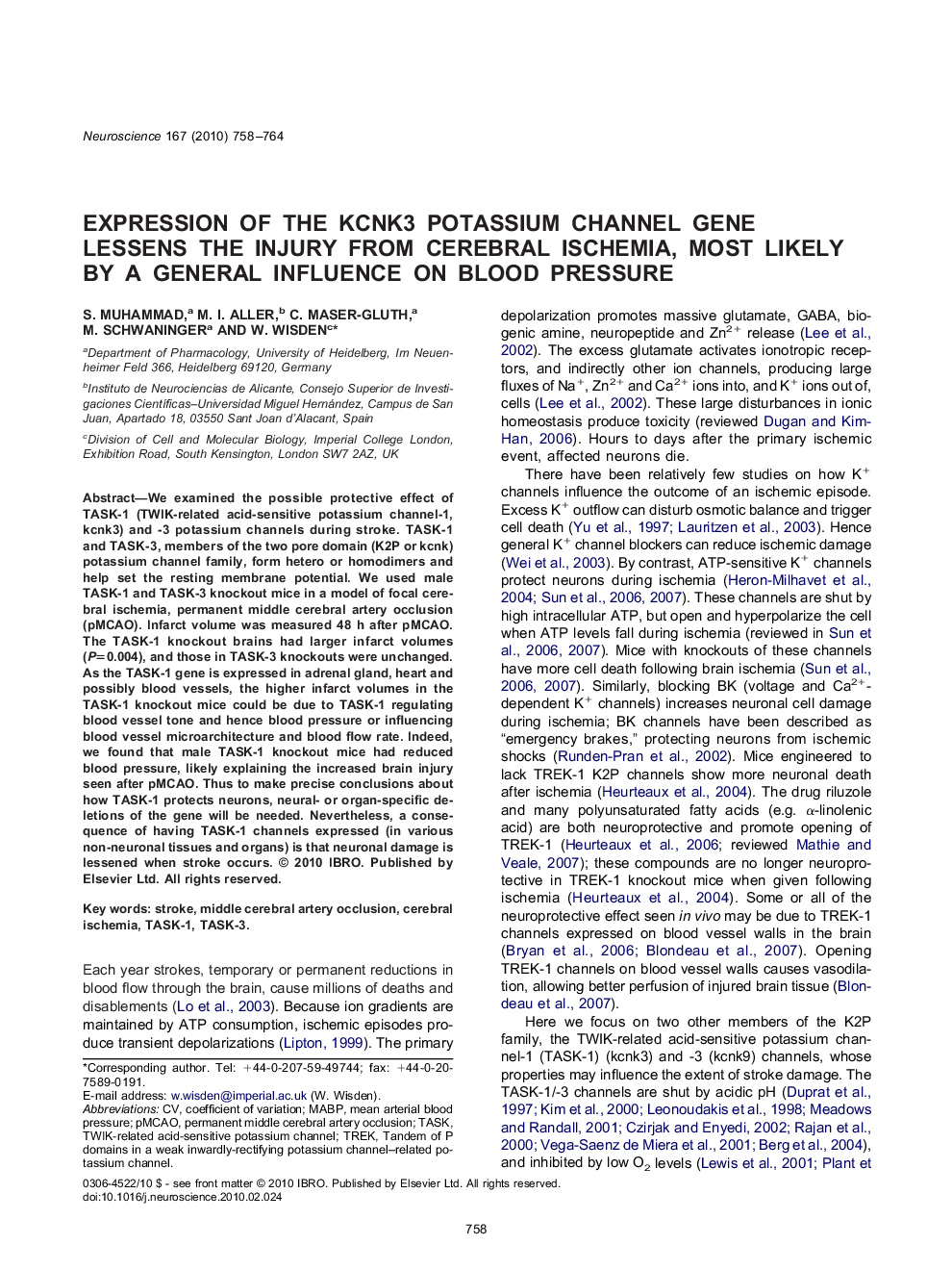| کد مقاله | کد نشریه | سال انتشار | مقاله انگلیسی | نسخه تمام متن |
|---|---|---|---|---|
| 4339626 | 1295762 | 2010 | 7 صفحه PDF | دانلود رایگان |

We examined the possible protective effect of TASK-1 (TWIK-related acid-sensitive potassium channel-1, kcnk3) and -3 potassium channels during stroke. TASK-1 and TASK-3, members of the two pore domain (K2P or kcnk) potassium channel family, form hetero or homodimers and help set the resting membrane potential. We used male TASK-1 and TASK-3 knockout mice in a model of focal cerebral ischemia, permanent middle cerebral artery occlusion (pMCAO). Infarct volume was measured 48 h after pMCAO. The TASK-1 knockout brains had larger infarct volumes (P=0.004), and those in TASK-3 knockouts were unchanged. As the TASK-1 gene is expressed in adrenal gland, heart and possibly blood vessels, the higher infarct volumes in the TASK-1 knockout mice could be due to TASK-1 regulating blood vessel tone and hence blood pressure or influencing blood vessel microarchitecture and blood flow rate. Indeed, we found that male TASK-1 knockout mice had reduced blood pressure, likely explaining the increased brain injury seen after pMCAO. Thus to make precise conclusions about how TASK-1 protects neurons, neural- or organ-specific deletions of the gene will be needed. Nevertheless, a consequence of having TASK-1 channels expressed (in various non-neuronal tissues and organs) is that neuronal damage is lessened when stroke occurs.
Journal: Neuroscience - Volume 167, Issue 3, 19 May 2010, Pages 758–764